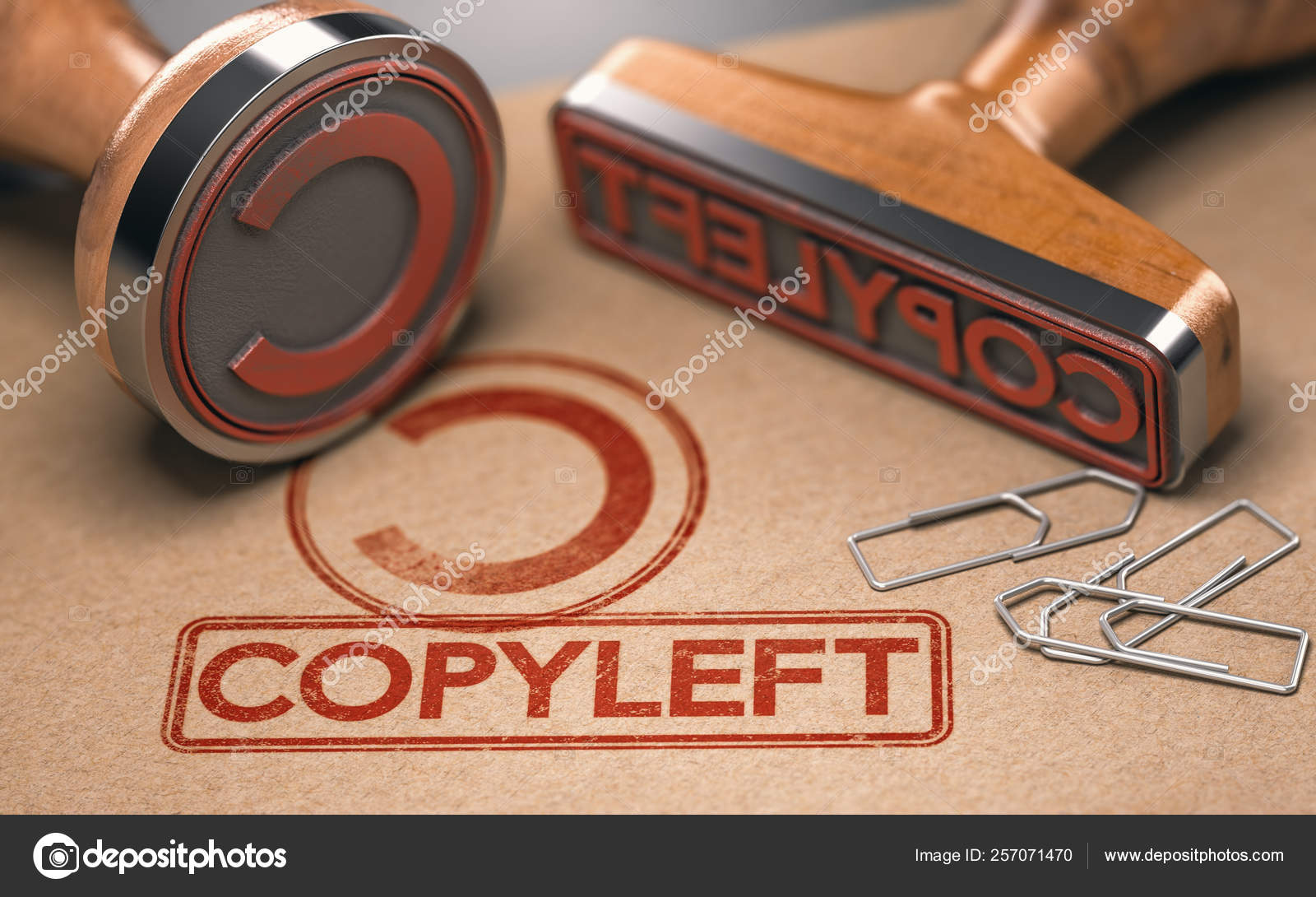Each intellectual property has to be protected by the law , thus giving it warranty that the product would not be misused. Copylefting, in its essence is the practice of granting the right to freely distribute and modify intellectual property with the requirement that the same rights be preserved in derivative works created from that property or in other words full protection from altering, repeated use and implementing the product into a new one with commercial purpose. Among many kinds of copylefting, the most popular of them is the GNU GPL(General Public license) which was made by programmer and member of the American Free Software Movement Mr Richard Matthew Stallman. If something is made under a copyleft license, it allows the public the to copy and reproduce someone's work and modify the product or create their own version which may be better or faster while at the same time preventing the modifiers from obtaining any license except a copyleft license.
[Source: https://st4.depositphotos.com/1202020/25707/i/1600/depositphotos_257071470-stock-photo-copyleft-licence-concept.jpg]
Copyleft licenses come in two types: strong and weak. This distinction specifies how much new or adjacent code is subject to the copyleft license. Under a strong copyleft license like GPL, if you redistribute a program that includes GPL code written by others, you must make your entire program available under GPL. That includes any linked libraries or other components of the program. For example, GPL v2, GPL v3, AGPL are all strong copyleft licenses. On the other hand, weak copyleft licenses also obligate users to release their changes. However, this requirement applies to a narrower set of code, for example, The Mozilla Public License 2.0. If a user keeps the MPL licensed code in separate files, they can then combine it with additional and/or modified code to create an aggregate work. The newly added files may be released under a different license or kept closed-source. This is sometimes called file-based copyleft. Another example is the LGPL License, which mainly applies to libraries. Any changes to the library must be released under the same license, but a work that simply uses the library is exempt. Which greatly improves freedom and allows coders to access libraries easily without having to worry about braking the law.
At the end of the day, copyleft allows coders to contribute and collaborate on a project freely, thus allowing us to advance in technology. Because if a single person owned a piece of code, which had a clear issue and many people knew the solution, but the owner was too lazy to take action, that would result in a good project dying out. OpenJDK is one of the best examples as its a set of libraries for Java, that anyone can use in production without any law consequences.

Comments
Post a Comment